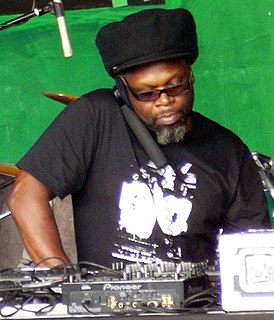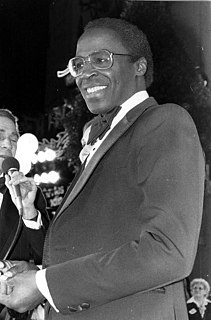A Quote by Jazzie B
No matter where I went, there was someone rejecting my ideology. What was interesting was these reactions made me want to do it even more because we had smoothed over that void, smoothed over what was missing. After all, our motto was, "A happy face, a thumping bass, for a loving race."
Related Quotes
Moonlight streamed in, sending loving beams over his face. He closed his eyes and basked in it, and I could tell it was calling to him, even though the moon was not full. She didn't speak to me, but Samuel had once described her song to me in the words of a poet. The expression of bliss on his face while he listened to her music made him beautiful.
He didn't see anything." She rolled to her feet. "I was in your bed! We could have scarred him for life!" "Grace, we weren't doing anything. Well, I wasn't. You were snoring." "I don't--" She smoothed her dress down and searched out her sandals, shoving her feet into them. She glanced at herself in the mirror over his dresser and groaned. Hair, wild. Lips, swollen. Face, flushed. Nipples, hard. "Dammit!" She clapped her hands over them. "It's like they're broken!
In America there's a tendency to write the same book over and over because that's what sells. So in a way, my success in America has come at the expense of what I do. I haven't sold out, and I haven't taken the popular road to writing a best-selling book. I've really bucked the system. So it was necessary for me not to go and find the easy fans, the ones who want something digestible and fast with a happy ending that they can read over and over again no matter how many different books it is. I had to find fans who really wanted to think. Worldwide they all have that in common.
For me, reworking the past over and over again is a way not to trivialise the garments and not to obsess over hem lengths. What I am interested in, as a matter of fact, is telling a story and, if someone sees fragments of other stories in it, be my guest. I don't have to justify myself. What is urgent for me is what I want to say.
It's assumed that if you're a woman, you want to be the prettiest version of yourself. It always put me in a bad mood. It was like, "OK, I'm successful. I'm supposed to be happy. Well, why aren't I happy?" Part of the problem was that my looked-at-ness had become a priority over my art making. Over and over again it was like, "I don't have time for this. I want to work." I love writing. I don't love somebody putting false eyelashes on me.
My loneliness...still comes over me sometimes...It's a liminal, lost sensation of having wandered wide, endless boulevards, among rows of orange trees, winter butterflies, seasons reversed and out of order, dogs barking from behind fences meant to keep out intruders. It's not the place that impoverishes me but I who bring my own sense of poverty, of loss, to the place. It's a sense of near nothingness, as though I were not so much a blank slate as an erased chalkboard, still bearing illegible smudges of smoothed-over writing.







































